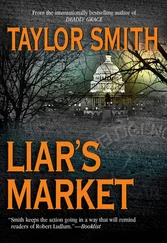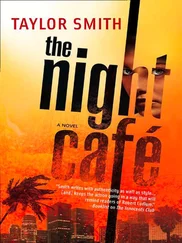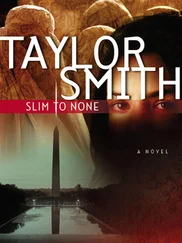And who knows? Maybe it strangled both of us. For years now, I’ve harbored the guilty feeling that my mother would have been happier if I’d never been born. That the burden of my childish needs forced her to abandon any thought of pursuing her own. That ensuring my security destroyed any chance she might have had to find a little happiness of her own.
She left her country and the life she knew to bring me here to live with my father’s parents. I can’t remember a time when my grandparents weren’t the most loving influence on my life, and I will always be grateful for the safe cocoon of their warmth. I’m certainly glad they’re not alive now to see how I’ve ended up.
In spite of my grandparents’ unswerving love and support, though, there was a sadness that permeated our home like a layer of fine dust. Now and then, it lifted a little, but inevitably it would soon settle back over us all.
My late father was Nana’s and Grandpa’s only child, and of course, no worse tragedy can befall a parent than to lose a child. Now, as I look back through adult eyes, I can see how my young life was marked by the faint shadow of grief behind their encouraging smiles. Every milestone I passed successfully must have reminded them of that other child they’d nurtured safely through the pitfalls of childhood, only to have him perish alone in a foreign land.
And my mother? His shadow seemed to hang over her, too, and I sometimes felt she could barely make me out in the gloom of those memories. When I was little, there were moments when I wanted to fly into a room and just crash into her—anything to break through, to get her to notice me. But fear or training or both held me back. I waited, watching and hoping she would turn on me the radiant, incredible smile that she bestowed like a blessing on so many others who came to love and admire her. She never did—at least, not when we were by ourselves and I could be absolutely certain that she meant it for me and me alone.
For years, I thought the problem was that I reminded her too much of my father, whose silver-framed photograph smiled down on us from the living room mantle. That my existence was a constant, aching reminder of his absence. In recent years, though, I resigned myself to the possibility that she might simply have been one of those women who didn’t enjoy motherhood. I even wonder whether she’d ever really wanted a child. She never said, but I can’t help thinking that I was an accident with which she simply coped, just as she coped with all the other setbacks and tragedies in her life. There is nothing worse than thinking your very existence is a mistake.
Mind you, I’m sure all of Havenwood would testify that she was a model parent, utterly conscientious. As a child, I adored her and lived in terror of losing her. But as I grew older, I began to realize that her life might have been so much more had she not sacrificed herself for my sake—buried herself alive in this tiny prairie town where her experience and skills would always be underutilized, her past little understood, no matter how much she was admired.
I knew—everyone knew, vaguely—how her life before coming to this country had been full of action, danger and passion, like something out of great fiction or the movies. Living on the front lines of World War II, plunged right into the action, she’d been part of one of the greatest struggles between good and evil the world has ever known. Lines were clearly drawn then, more so than at any time before or since. For my mother’s generation, there was the evil of fascism on one side and all those who opposed it on the other. As a partisan, she led a life of action and passion—and unthinkable tragedy. But when the battle for freedom was won, she retired with me, her infant daughter, to a remote and foreign place, the small hometown of the husband she’d found, then lost in the midst of that great struggle.
I can’t believe she wasn’t sometimes bored to utter despair here. Bored and lonely. And yet, to my knowledge, she never considered packing up and moving someplace else where she might at least attend a concert or a stage play from time to time, perhaps find someone—a friend, lover, or new husband—whose interests went beyond grain prices, TV shows, local gossip and the winter windchill factor. Someone to understand her and share her life.
I remember the first time it really dawned on me that my mother had once had a life beyond Havenwood. It was after both my grandparents had died; I must have been twelve or thirteen at the time. My mother and I were at home one evening, watching an old movie on television. I don’t remember which one. All I know is that it was set on one of those elegant British estates that hardly exist anymore and that the entire cast spoke like my mother. And it suddenly struck me there might actually be a place on this earth where Grace Meade didn’t stand out like a mink coat at Woolworth’s.
I remember, too, glancing over at her and being thunderstruck by the realization that she could cry.
“Mum? What’s wrong?” I asked her—panicked really, because this was so unlike her.
Her ivory linen handkerchief fluttered in an embarrassed little wave. “Oh, nothing, darling. I’m sorry. I don’t know what’s come over me.”
“What do you mean? What’s wrong?”
She hesitated, glancing at the television, but Deborah Kerr (I think that’s who it was) had given way to Tony the Tiger and a Frosted Flakes commercial. My mother’s porcelain blue eyes, brimming with tears, turned back to me, two points of color standing out on her cheekbones, which were high and smoothly defined. Although her face became a little softer and rounder as she aged, she was beautiful right up to the day she died.
“It’s silly, really,” she said. “I suppose I was just feeling a little homesick.”
“Homesick? You were?”
I was dumbstruck. The thought had never occurred to me that she might wish to be anywhere but where we were. She did have an airmail subscription to the Daily Mail and the Times of London, of course, and she kept a short-wave radio in her bedroom so that she could listen to the BBC. We had a tradition in our house that on December 25, we had to wait until after the Queen’s Christmas message before my mother would come out and join my grandparents and me in opening our gifts around the tree.
But those were just my mother’s strange little quirks. I’d never thought of her as a particularly sentimental person. She almost never spoke of her life before coming to Minnesota. Like most overconfident Americans, I simply assumed that she was thrilled to be here.
As I grew older, though, it dawned on me that her reluctance to revisit the past mightn’t be lack of sentimentality as much as her way of coping. After all, she’d endured terrible losses in those years before I was born—her parents, a fiancé, my father, her home, not to mention God knows how many friends and comrades from her period of war service.
Was it any wonder, then, that the subject of the past would be painful for her.
“Do you miss England, Mum?”
“Sometimes, yes, I suppose I do,” she confessed.
“Are you sorry you left?”
“No, not really. There’d be no point in being sorry, would there? Always remember, Jillian, once you make a decision, you must never look back.”
“You could have stayed there,” I pointed out, intrigued at the idea that I might have had an entirely different life, one in which I went to a school that looked like an old castle and wore a school uniform with a kilt, knee socks and a crested blazer. Mentally, I tried on an English accent, picturing myself as a more gangly, less pretty (obviously) version of Elizabeth Taylor in National Velvet.
But my mother’s head gave a firm shake. “No, darling. Coming here was the best option at the time. Things were terribly difficult at home when the war ended. You were a tiny baby, so you can’t remember what it was like, but I remember it very well, indeed. We were living in one cramped little room in an old house outside London. It was hardly big enough for a bed and a small table. Your cradle was an old bureau drawer. We needed a flat desperately, but there were simply none to be had. So many houses had been bombed by the Germans, and with all the men coming back from the front after 1945, there was a dreadful shortage of housing. Naturally, war veterans were at the top of the waiting list, so there was no telling how long we would have to live like that. It was no way to raise a child.”
Читать дальше












